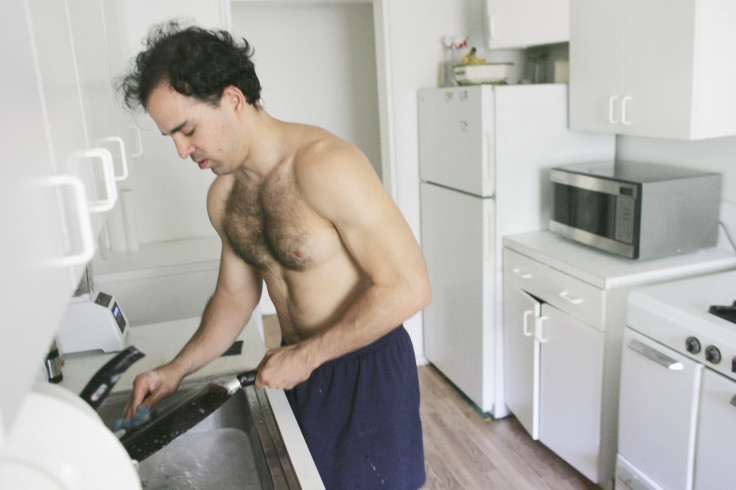The More Chores A Husband Does, The More Likely The Marriage Will End In Divorce

Updated | Couples may be better off living in a "traditional" household where women do all the housework if they want to stay together, according to a report from the Oslo and Akershus University College of Applied Science.
Norwegian researchers were interested to see how married and cohabiting men and women divided housework and childcare throughout various life stages. They analyzed two separate studies involving nearly 20,000 men and women aged 18 to 79: the study of Life Course, Generation and Gender, and the study of the Norwegian Life Course, Ageing, and Generations. Participants respectively answered questions about the division of housework and childcare; their attitudes toward gender equality; as well as other variables like life stage and social class.
The results showed 65 percent of couples equally or near-equally divided childcare, but not housework: Women reported doing all or almost all of the work in 11 percent of couples and "somewhat more of the work" in 60 percent of couples. About 25 percent of couples divided the work more equally, with younger couples, childless couples, and couples where the woman had a full-time job among those more likely to split domestic chores.
Researchers did not find an association between a traditional share of housework (women do most of the work) and a lower risk of divorce — but they did report untraditional couples had a greater risk for divorce. Men who did as much or more of the housework were more likely to get divorced than couples where the woman did most of the housework over a period of four years.
"The more a man does in the home, the higher the divorce rate," said Thomas Hansen, co-author of the study entitled "Gender Equality At Home," according to AFP. While researchers found no or very little cause-and-effect, they believe that the observation could be due to "modern" attitudes.
It may be traditional couples "hold a high value of marriage and a more traditional attitude towards divorce," while untraditional couples "may hold less of a traditional or modern view of marriage, whereby marital dissatisfaction more easily leads to marital break-up," according to the report.
"Modern couples are just that, both in the way they divide up the chores and in their perception of marriage" as being less sacred, Hansen said, stressing it was all about values. "In these modern couples, women also have a high level of education and a well-paid job, which makes them less dependent on their spouse financially. They can manage much easier if they divorce."
Researchers said sharing equal responsibility for domestic chores doesn't necessarily contribute to contentment, and that the lack of equality at home and quality of life was surprising. "One would think that break-ups would occur more often in families with less equality at home, but our statistics show the opposite," Hansen said.
He said that the correlation could be because couples are happier when they have clearly-defined roles in the relationship where people aren't stepping on each other's toes. "There could be less quarrels, since you can easily get into squabbles if both have the same roles and one has the feeling that the other is not pulling his or her own weight," he added.
The results from the latest survey appears to contradict a recent study carried out by researchers at Cambridge University earlier this year that found men were actually happier when sharing the housework.
The Cambridge study was based on previously collected data from 30,000 people in 34 countries. Researchers found that men had benefited the more they contributed to household chores, but researchers suggested that this could also be because they preferred a quiet life doing housework than having a disgruntled other half.
This story has been updated to include more information on study methods and conclusions.



























